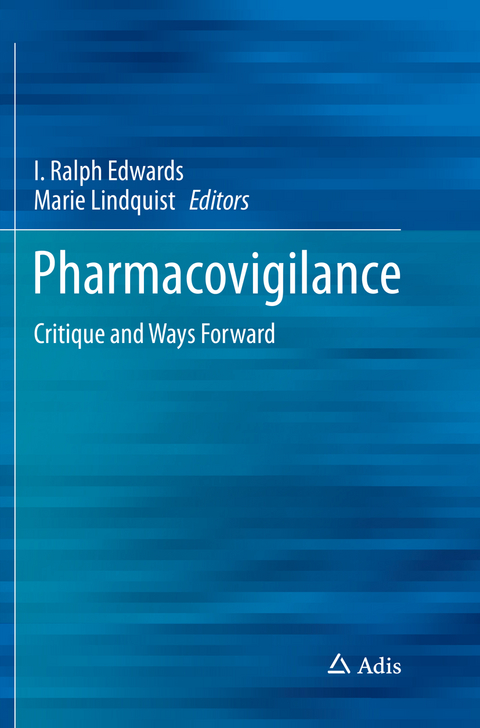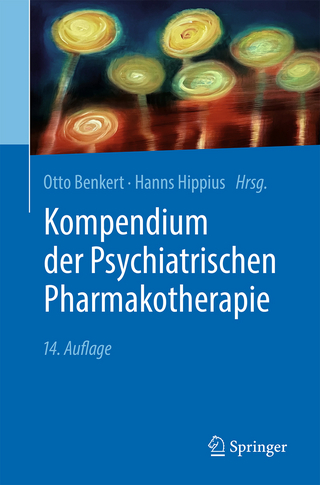
Pharmacovigilance
Springer International Publishing (Verlag)
978-3-319-82093-4 (ISBN)
Written by experienced authors, this book offers expert personal views on what the current problems in pharmacovigilance are and how they should be solved. This book stems from thoughts and ideas discussed in a series of meetings of the International Society of Pharmacovigilance (ISoP), where concerns were raised that the current pharmacovigilance system is not delivering optimally to improve therapeutics in clinical practice.
Pharmacovigilance of the future must be an active and integral part of health care delivery, and focus more on science and practices that support health professionals and patients in day-to-day care situations. To achieve this, a dynamic and sustainable development of vigilance must take precedence over the current excessive preoccupations with data processing and regulations; all aspects of medicines use and their effects need to be considered; and all stakeholders must be involved and engaged in an open and constructive debate.
The work is essential reading for anyone who has an interest in safer use of medicines. It is intended to be equally challenging and rewarding, and sets out to stimulate a continuous debate on how pharmacovigilance can better meet the needs of health professionals and patients to achieve the aim of wise therapeutic decision making.Ivor Ralph Edwards is a Professor in Medicine, Senior Advisor, WHO and Uppsala Monitoring Centre. He was the first Director of the UMC and the inaugural President of the International Society of Pharmacovigilance. He has been Professor of Medicine in Zimbabwe and Director of the National Toxicology Group in New Zealand. Research interests lie in the area of clinical toxicology and pharmacovigilance with a main interest in knowledge finding in drug safety, and the risk and benefit analysis of drugs. He has been a consultant to WHO, the UN and UNITAID, and acted in the capacity of expert witness in cases concerning drug and chemical injury in the UK, USA, New Zealand and Sweden. He has published over 300 peer reviewed scientific publications and completed work in 4 books, and serves as a member of the editorial board of Drug Safety and the International Journal of Risk and Safety in Medicine. He is a Fellow of the Colleges of Physicians of London, Edinburgh and Australasia. Marie Lindquist is Director and CEO of the Uppsala Monitoring Centre and heads the Foundation WHO Collaborating Centre for International Drug Monitoring. She has served as Vice President of the International Society of Pharmacovigilance and is a Board Member of the International Society of Pharmacoepidemiology. Her research interests are in clinical epistemiology and ontology with data quality management and analysis of big data, as well as development of problem solving methodology. She has published 57 peer reviewed papers and completed work on 4 books. She has been an expert member of WHO, ISO, CIOMS and ICH working groups, and serves as a member of the editorial board of Drug Safety and the International Journal of Risk and Safety in Medicine. She is a PhD (cum laude) in Medical Science, University of Nijmegen and Honorary Fellow of the Royal College of Physicians (London).
1. How to learn Pharmacovigilance, now and in the Future.- 2. Lost in Regulation.- 3. What is the Future of Pharmacovigilance and how can we Make it as Good as Possible?.- 4. Some Other Ideas About the Future of Pharmacovigilance.- 5. Best Safety Practices now and in the Future.- 6. Is There a Benefit from the Medical Literature Monitoring Service of the EMA?.- 7. The Unified Drug Safety-Clinical Database.- 8. Behind the Scenes - 'Silent Factors' Influencing Pharmacovigilance Practice and Decisions.- 9. Shaking up Culture and Communication in PV [V6].- 10. Broadening the Scope of Pharmacovigilance.- 11. Effective Treatment Matters: Revitalizing Pharmacoviglance.- 12. There are More Weber-Effects.- 13. Herbal and Traditional Medicines, Now and Future.- 14. The Concept of 'Health'.- 15. Impact of Referral Procedures on the Interaction of RMP and PSUR.- 16. Other Sources of Information for Monitoring Drug Safety: Now and in the Future.- 17. Ecopharmacovigilance.
| Erscheint lt. Verlag | 27.6.2018 |
|---|---|
| Zusatzinfo | XXXI, 205 p. 16 illus., 3 illus. in color. |
| Verlagsort | Cham |
| Sprache | englisch |
| Maße | 155 x 235 mm |
| Gewicht | 503 g |
| Themenwelt | Medizin / Pharmazie ► Medizinische Fachgebiete ► Pharmakologie / Pharmakotherapie |
| Medizin / Pharmazie ► Pharmazie | |
| Schlagworte | Best Practices • Communication • critical thinking • Culture • Decision Making • Drug Safety Monitoring • Risks and Benefits • Science and Bureaucracy |
| ISBN-10 | 3-319-82093-1 / 3319820931 |
| ISBN-13 | 978-3-319-82093-4 / 9783319820934 |
| Zustand | Neuware |
| Informationen gemäß Produktsicherheitsverordnung (GPSR) | |
| Haben Sie eine Frage zum Produkt? |
aus dem Bereich


